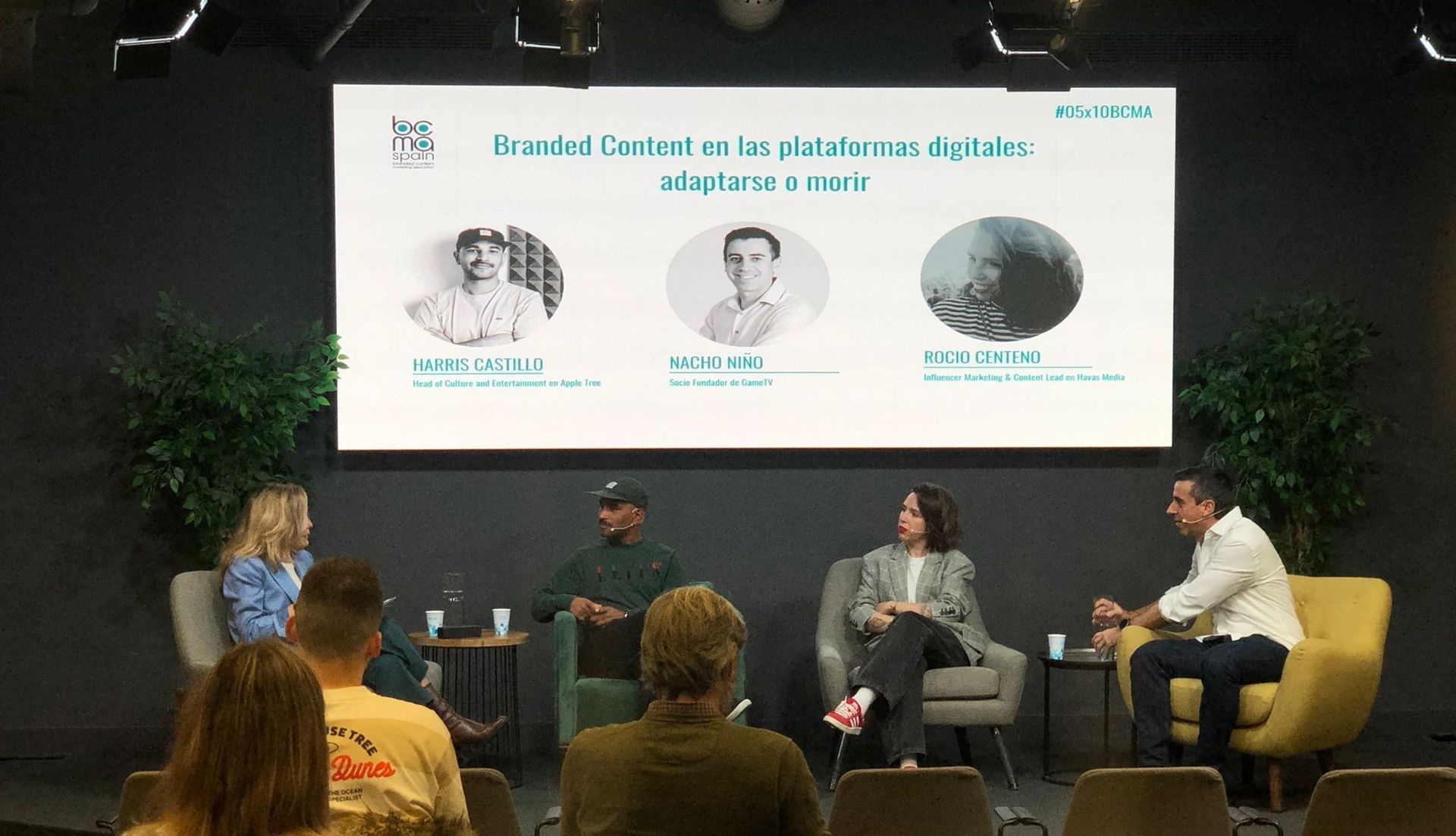New and emerging generations of consumers seek authentic and personalised connections with brands, emphasizing the importance of user experience, recommendations, and content creation to engage them effectively. These digital-native audiences now wield considerable influence over marketing budgets, making influencer marketing a vital component in any marketing and communications strategy. A recent study by the IAB, “The Creator Economy Opportunity: Where Authenticity Meets Impact,” underscores the growing trend of advertiser investment in content creators. The study reveals that 44% of marketers plan to increase their investment in influencers by 2024, with investment expected to rise by up to 25%.
Branded content on different platforms
To analyse this rising trend and how brands can effectively create branded content activations with content creators, the BCMA recently organised the event “Branded Content on Digital Platforms: Adapt or Die”. During the panel discussion, Harris Castillo, Head of Culture & Entertainment Communications at APPLE TREE, highlighted “the importance of finding a common ground” between what a brand wants to say and what the consumer wants. To do this, “it is very important to put yourself in the eyes and ears of the public, to choose where, how and with whom to develop an effective Branded Content strategy”, Harris assured the audience.
Brand managers and agencies representing creators are grappling with finding an effective working methodology that balances creative freedom for content creators with brand protection and maximum ROI. As the head of Culture & Entertainment at APPLE TREE aptly noted, many clients overlook the power of allowing influencers to express themselves authentically in their brand-sponsored content. “letting them be creative with the content they create for the brand and let them express themselves in their own way, to generate an effective message that impacts their community.”
While influencers and content creators have become a preferred choice for brands, incorporating these profiles into branded content strategies is not a novel concept. However, advertisers are witnessing a surge in their adoption and are forcefully intensifying it. According to the findings of the study mentioned above, ads surrounding content by content creators exert a more significant influence on consumers during the research and consideration stages of the purchase funnel compared to content in traditional media like magazines or websites.
As a result of this shift in audience perception, the content creator economy is estimated to reach $250 billion this year, according to Goldman Sachs. It is expected to grow to $480 billion by 2027.


